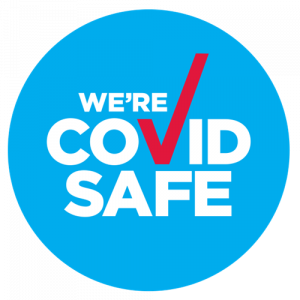Speech therapy treats a range of disorders, delays and difficulties across the lifespan. While it is often thought of in the community as a service for children, speech pathologists are trained in communication and swallowing disorders for all ages. Their role is diagnosis, treatment and management.
What may an adult need speech therapy for?
Speech pathologists are trained in the domains of speech sounds, language, social skills, fluency, voice and swallowing. There are a range of diseases, disorders and conditions that effect these skills. Common causes for adults receiving speech therapy include:
- Stroke
- Persistent loss of voice
- Dyslexia
- Vocal nodules rehabilitation
- Traumatic brain injury
- Progressive disease, such as Motor Neuron Disease, Parkinson’s Disease etc.
- Normal changes associated with ageing
- Dementia/Alzheimer’s Disease
- Stuttering
- Language disorders
- Laryngeal, facial and oral cancer
- Aphasia
- Dysarthria
- Dysphagia
- Apraxia
- Chronic cough
- Intellectual delay
Communication difficulties which affect adults may lead to feelings of inadequacy in social, professional, educational and personal lives. Additionally, adults may experience difficulties with their swallowing which can impact on adequate intake to support their energy needs, safe intake of food and drink, and enjoyment of eating and drinking.
What kind of language difficulties can an adult experience?
Language includes being able to understand information and use communication. This includes all methods including speech, reading, writing, and augmentative and alternative Communication (AAC).
Language deficits can significantly impact on independence and self-worth. A common type of language impairment following a change in brain functioning, such as stroke, is aphasia.
There are different types of aphasia which may cause challenges thinking of the right word to use, making sentences, understanding what words mean, reading and spelling. Adults may also experience language deficits due to an ongoing developmental conditions and normal changes during ageing.
Many speech therapy approaches require the client to do tasks outside of the appointment to achieve and maintain best results. Your therapist will work with you to make these as achievable in daily life as possible.
What should I expect as an adult client?
As a client at Harrison Speech Pathology you will receive respect and care. Our therapists are trained in countless disorders and conditions and provide a service personalised to your needs.
Your therapist will support you in your needs and help advocate for you. This is particularly important when a client’s difficulties mean they can no longer successfully communicate for themselves. As an adult, your initial appointment will be focused on your therapist gaining information necessary for planning ongoing management.
Your therapist’s plan will be based upon your own goals, lifestyle and area of difficulty. This can range from implementing AAC in the absence of verbal communication to being able to better communicate in the workplace.
No matter what age group, your therapist will use evidence-based practice combined with knowledge of how to tailor therapy to your personal needs to create a specific therapy plan. If you are receiving multiple services your speech pathologist will work with all professionals to ensure you receive holistic and cooperative intervention.
What factors impact recovery?
Everyone is individual in their communication and recovery. Some people fully recovery from their difficulties while others may have management strategies put in place in the anticipation that their condition will worsen. This is dependent on several factors including:
- Medical diagnosis and management
- Age
- Motivation
- Therapy attendance
- How early therapy is applied
- Personal goals
- Pre-morbid functioning
- IQ
- Medications
Your therapist will use best clinical judgement in addition to evidence-based practice to determine a likely prognosis.

